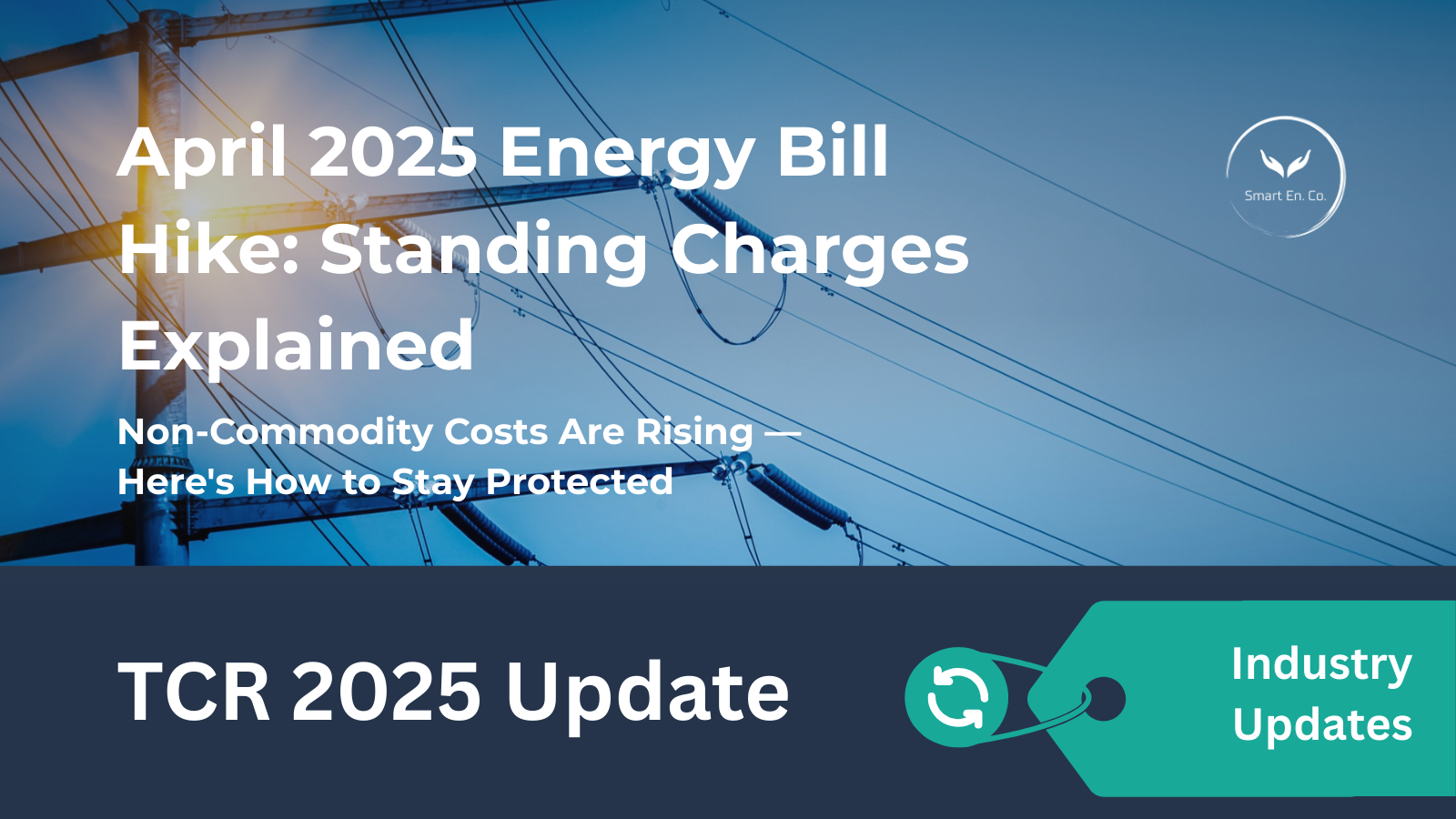Understanding the 2025 NCC Spike: Why Standing and Capacity Charges Are Rising
⚡️ Why Are Your Standing Charges Rising? What April’s Non-Commodity Hike Really Means for Your Energy Bill

If you've received a new business energy quote recently — especially after April 1st — you might have noticed something odd: your standing charges have gone up, even if your energy usage hasn’t changed.
This isn’t a mistake. It’s part of a broader shift in how non-commodity costs (NCCs) — the parts of your energy bill that have nothing to do with the actual energy — are calculated and passed through by suppliers.
And for some businesses, this change is adding hundreds or even thousands of pounds a year to their bills overnight.
📊 Real Example: £1,200+ Extra — Same Contract, Same Supplier, Different Timing
One of our clients with a Half Hourly electricity meter under British Gas was quoted before and after April 1st, 2025. The contracts were identical in terms of usage, site, and supply details — but the fixed charges weren’t.
Here’s what changed:
| Charge Type | Before 01/04/2025 | After 01/04/2025 | Difference |
|---|---|---|---|
| Standing Charge | 945.09p/day | 1180.29p/day | +235.2p/day |
| Capacity Charge | 2.99p/kVa/day | 3.73p/kVa/day | +0.74p/kVa/day |
| Agreed Capacity | 140 kVa | 140 kVa | - |
Over the course of a year, that adds up to:
- £858.48 more in standing charges
- £378.14 more in capacity charges
That’s £1,236.62 extra per year — for the exact same site and consumption, simply because of a change in timing and supplier cost structures.
🧾 What’s Behind These Price Increases?
This isn’t about suppliers hiking prices without reason. These changes reflect updates to regulated pass-through charges that most suppliers adjust in April each year.
🔌 1. TCR (Targeted Charging Review) Reforms
Ofgem’s TCR reforms have pushed more distribution and transmission costs into fixed daily charges. This means sites with higher demand — especially Half Hourly metered ones — now shoulder a larger share of these fixed costs.
📡 2. DUoS & TNUoS Tariff Changes
Distribution (DUoS) and Transmission (TNUoS) Use of System charges were reviewed and rebalanced for 2025–26. These updates usually come into effect on April 1st, increasing standing and capacity charges across the board.
📈 3. Inflation & System Recovery Costs
Other factors like Capacity Market uplift, network recovery charges, and inflationary adjustments are also baked into these changes — and passed through directly in fixed-rate quotes.
⚛️ 4. New Charges Like the E11 Nuclear Levy
A brand new non-commodity charge — the E11 Nuclear Construction Charge — is also being introduced from 2025 to help fund the Hinkley Point C project. If you missed it, we’ve broken it down here:
👉
How the New E11 Nuclear Levy Will Affect Your Business Energy Bill in 2025
Combined, these changes are making it more important than ever to understand what’s actually fixed in your contract.
🤔 Can You Fix These Charges for Longer Than 12 Months?
That depends on the supplier — but with Smart Energy Company, we aim to fix everything.
While many energy brokers only secure the unit rate (for electricity or gas usage), we prioritise fully fixed contracts where your:
- ⚡️ Unit rate
- 💡 Standing charge
- 🔋 Capacity charge
…are all locked in for the full contract term — whether that’s 12, 24, or 36 months.
That means if you secure a 3-year deal now, you’re protected from standing charge hikes in April 2026 and 2027, no matter how non-commodity costs change in future regulatory updates.
✅ Our Take: Fix While You Still Can
If your contract is up soon — or you’ve received a quote with fixed non-commodity elements — now is the time to act. These costs are only going in one direction, and we’re already seeing sharp rises in standing and capacity charges across all suppliers.
💬 Want Us to Check Your Quote?
We can review your current quote and let you know exactly what’s fixed, what’s not, and how to lock in a fully secured deal that protects you from future NCC surprises
👉 Our advice is jargon-free and fully independent.
Explore More Insights
Dive into more energy updates, market reports, and supplier insights tailored for your business


